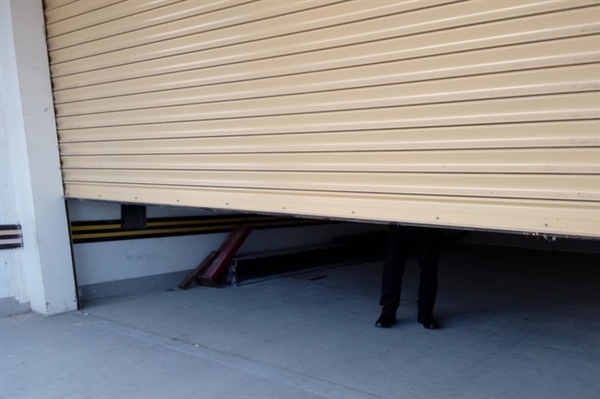Why Won't My Garage Door Close?

It's frustrating when your garage door refuses to close, especially when you're in a hurry or the weather is less than ideal. A malfunctioning garage door isn't just inconvenient; it can also pose a security risk to your home.
Understanding why your garage door won't close and how to address the issue is essential for every homeowner. In this article, we'll explore common reasons why your garage door might not be closing properly, from simple troubleshooting tips to more complex issues like sensor malfunctions and track misalignment.
Whether you're facing a minor hiccup or a major problem, this guide will help you navigate the situation with confidence.
Troubleshooting Tips for Garage Doors That Won't Close
When your garage door refuses to close, it can be due to a variety of reasons, ranging from minor obstructions to more serious technical issues. Start by checking if there's anything blocking the door's path. Small objects, debris, or even a slight misalignment can prevent the door from closing completely. Additionally, inspect the garage door opener's settings and ensure that it's functioning correctly.
Another common issue could be related to the remote control or wall switch. Ensure that the batteries in your remote are fresh and that the wall switch is properly connected. Sometimes, simply resetting the garage door opener by unplugging it and plugging it back in can resolve the problem. Finally, make sure the door’s manual lock isn’t engaged, as this will prevent the door from closing even when the opener is functioning perfectly.
If you've checked these common troubleshooting steps and the door still won't close, it might be time to consider more specific issues like sensor malfunctions or track alignment, which we'll discuss in the following sections.
Sensor Issues That Can Prevent a Garage Door from Closing
Garage door sensors play a crucial role in ensuring that the door doesn't close on objects, people, or pets. However, these sensors can sometimes cause the door to stay open even when nothing is in the way. The sensors are typically located near the bottom of the garage door tracks and are responsible for detecting any obstructions.
Start by checking if the sensors are properly aligned. If one of the sensors is out of position, it can send a false signal, preventing the door from closing. Clean the sensors with a soft cloth to remove any dirt or debris that might be obstructing the signal. Additionally, check for any wiring issues that could be disrupting the sensor's function.
If these steps don't resolve the issue, it might be time to replace the sensors. Over time, sensors can wear out and lose their effectiveness.
Adjusting Track Alignment to Fix Closure Problems
Track alignment is critical to the smooth operation of your garage door. If the tracks are misaligned, the door may struggle to close or might not close at all. This misalignment can occur due to wear and tear, accidental impact, or even gradual shifting over time.
To check the alignment, inspect the tracks for any gaps between the rails and the rollers. The tracks should be straight and level. If you notice any bending or warping, gently tap the tracks back into place using a rubber mallet. Be sure to loosen the mounting brackets slightly before attempting this adjustment to avoid causing further damage.
Severe misalignment may require professional intervention. If the door still won’t close after adjusting the tracks, it’s best to contact a garage door specialist. Misaligned tracks not only prevent the door from closing but can also lead to more significant damage if left unaddressed.
The Impact of Weather Conditions on Garage Door Functionality
Weather can have a surprising impact on your garage door’s functionality. Extreme cold can cause the door’s metal components to contract, leading to misalignment or difficulty in closing. In contrast, high humidity levels can cause wooden doors to swell, which may also prevent the door from closing smoothly.
During winter, you may notice that your garage door struggles to close due to the cold. This is often due to the rubber seal at the bottom of the door becoming stiff, preventing a proper seal. In such cases, applying a lubricant designed for low temperatures can help keep the seal flexible.
In areas with high humidity or frequent rain, it’s essential to regularly check the door and its components for any signs of swelling or rust. Proper maintenance and occasional adjustments can mitigate weather-related issues and ensure your garage door operates smoothly year-round.
When to Call a Professional for Garage Door Closure Issues
While many garage door issues can be addressed with some basic troubleshooting, there are times when professional intervention is necessary. If you’ve tried the above tips and your garage door still won’t close, it’s time to call in the experts.
Professional garage door technicians like Rochester Overhead Door Co. have the tools and expertise to diagnose and fix problems that go beyond simple adjustments or replacements. Whether it’s a complex electrical issue, a damaged track, or a sensor that needs replacing, a professional will ensure the job is done safely and correctly.
Don’t wait until a minor issue becomes a significant problem. Contact us online or call us at 507-282-4666 for professional assistance with any garage door closure issues. We offer prompt and reliable service to ensure your garage door is back in working order quickly!